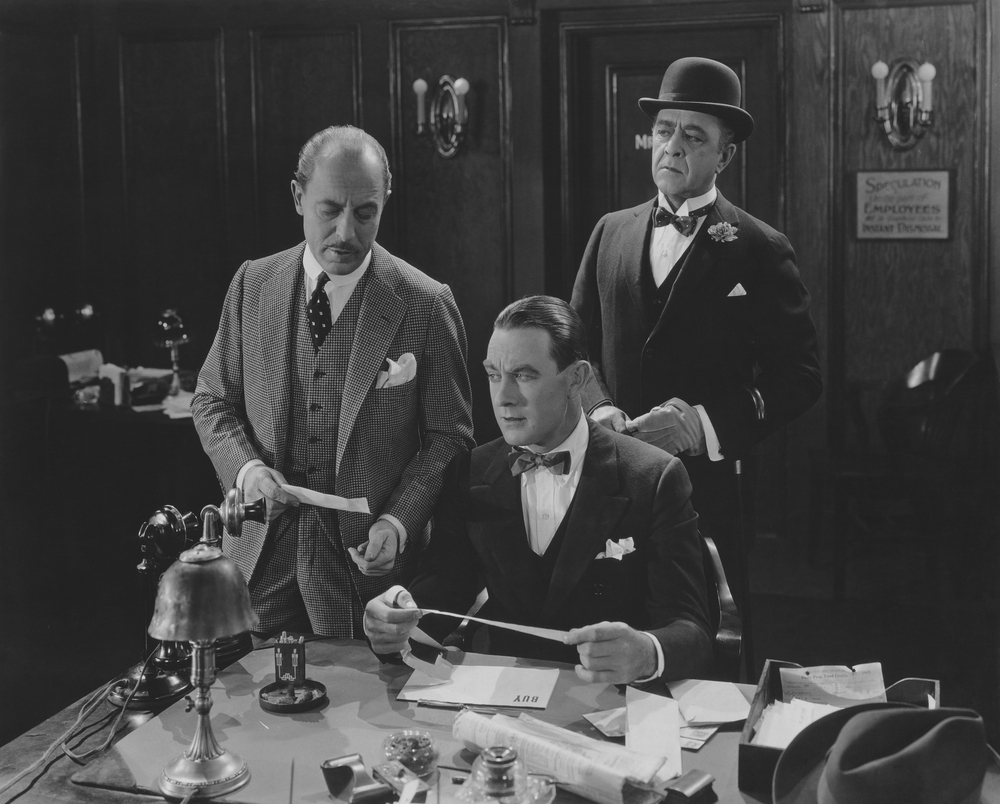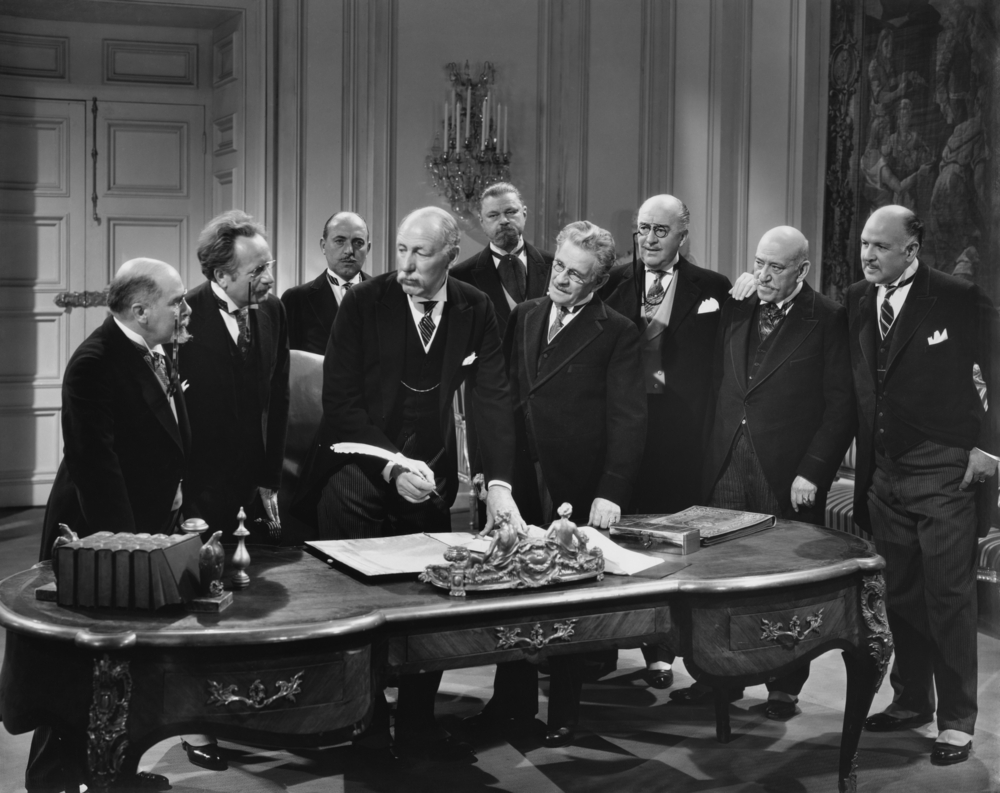California Film and TV Development Attorney Sebastian Gibson

California Film and TV Development Attorney Sebastian Gibson
Issues That Can Arise During the Development of a Film or Television Project
With multiple parties often involved in the creative process of a project, whether it’s a concept a producer has conceived, the script, ideas for a pitch, the music, obtaining development money, or a development deal, there can be issues of ownership, copyright issues, and a tendency to give away far too many important pieces of the pie which can leave the creator or creators of a work with little left but crumbs for themselves when all is filmed and done. And that’s what can happen when California Film and TV Development Attorney Sebastian Gibson isn’t retained early on in the development stage.
Before a filmmaker make promises they can’t keep or finds themselves in a situation in which they and a collaborator have each have agreed to an equal split and can no longer agree on anything, it’s essential to draft an agreement with the help of California Film and TV Development Attorney Sebastian Gibson.
When a collaborator starts to grumble about what’s in it for them, it can already be too late. The time to get experienced legal advice and consider discussing the framework of a producer’s working relationship is when they decide to collaborate with anyone else on their project.
It’s when a creator or producer begins to work with others on their project, share ideas with their best friends, or talk to others in the entertainment industry before putting their ideas to writing and have them copyrighted, that projects can be stolen. It’s possible after a submission has been made by a talent agency or by a network or studio after a reputable and experienced entertainment law firm has submitted a project to them but that’s less likely. Thefts of good ideas and concepts probably occur more frequently when a creative person shares their ideas with someone they’re closely involved with in the early stages or creation of the concept for their film or television project.
It’s also at the start of a collaboration when an individual creator or producer has the most leverage to strike a deal with others. The collaborator wants to work with them. It’s at that early stage they should get a contract signed, not when the collaborator has added to the value of the project and obtains leverage over the initial creator. Once a collaborator begins to add to the creative process, it’s too late. Once production starts, it’s impossibly late. Anyone who collaborates with others in the creation of a project has rights to a share in the copyrights eventually obtained for the work involved.
To reinforce how key it is to have contractual arrangements put to writing, before any distribution agreement can be obtained from a distributor, an E&O insurance legal opinion will be requested by the insurer to confirm the proper legal contracts have been signed with every participant in the creation and development of the project. A distributor must ensure that the production company is the sole owner of the project. Unless a producer’s rights are tied down in writing, that legal opinion will state there are issues which should concern the distributor. And distributors don’t want to hear that type of legal advice.
California Entertainment Attorney and the Law Firm Sebastian Gibson
California Film and TV Development Attorney Sebastian Gibson has been called “Brilliant” and “A Legend” and is a cum laude graduate of UCLA. He has law degrees both from the University of San Diego School of Law and from Cardiff University in Wales where he graduated magna cum laude.
With these dual law degrees in the U.S. and Great Britain, and over 40 years of combined experience both in London and California, California Film and TV Development Attorney Sebastian Gibson is the international entertainment law firm to turn to for music events, festivals and world tours, music, film, television, songwriting, film music licensing, film and TV production agreements, publishing, modeling, athlete representation, and other creative aspects of the entertainment industry in the U.S., the UK and around the world.
California Film and TV Development Attorney Sebastian Gibson
Focused on bringing great film projects to UK film producers who recognize the unique voice of British actors, directors and crews and as a California entertainment powerhouse working with actors, musicians, songwriters, novelists, models and athletes from offices just near enough to Hollywood but far enough from the congestion of LA, California Film and TV Development Attorney Sebastian Gibson is the right choice and the law firm to choose for all your entertainment endeavours from California to the UK and throughout the world.
California Film and TV Development Attorney Sebastian Gibson has been named one of the 2022 Top Lawyers by the prestigious Palm Springs Life Magazine for the past 12 years in a row and is one of the most acclaimed lawyers in the Coachella Valley of California. California Film and TV Development Attorney Sebastian Gibson has written for the Los Angeles and San Francisco Daily Journal Newspapers, is a published novelist and wrote and recorded the music and lyrics for the musical, Shake, in London. He has a top rating of “Superb” by Avvo, their highest rating, which rates attorneys all across the U.S.

Film and Television Concepts
Something no creative artist wants to hear is that their great concept for a film or television series may not be original. But this should not cause them to panic. Even if a dozen other creative people have had the same general concept for a film or TV series, none of them can express the same concept the same way as any other. And the more the writer expands their concept and puts it to paper, the more unique it becomes.
A one page treatment for a film or TV series is also unlikely to convince a jury that a writer’s concept was so unique, it had to have been stolen by the people who then produced a film or series that took place in the same locations, with the same brief descriptions of characters and which was in the same genre as described on the one page treatment.
But when that treatment is expanded to a dozen pages, or twenty or fifty and the same exact dialogue of the characters contained in those twenty or fifty pages is spoken on screen, and this type of more lengthy treatment has been copyrighted and submitted by an entertainment attorney for the writer to a studio that then produces a project which not only mirrors the elements but even utilizes the same dialogue, now California Film and TV Development Attorney Sebastian Gibson has a potential case for copyright infringement.
Copyright Mistakes When A Producer Attempts To Protect A Project in Development
Making the mistake of filing a copyright form in which a person makes the statement that a work is a derivative work when it isn’t, can affect California Film and TV Development Attorney Sebastian Gibson’s analysis of whether the production company is the sole owner of the project with the right to distribute a film, or whether further licenses or agreements must first be obtained by the production company.
When it comes to filing copyrights and trademarks, the creator of a work or the producer of a project needs to entrust the job to their own entertainment lawyer and to no one else. Allowing anyone else in the process to file the copyright for the producer and owner of the project can result in years of expensive litigation when rights are asserted by others in the creative process or when copyright applications are filed incorrectly.
Copyright assignments must also be utilized and drafted carefully to avoid loopholes that can result in litigation after a film is released. They should also be signed by anyone in the creative process to ensure that the producer is the sole owner of the project.
If a screenplay is written by more than one writer, or a writer co-writes it with the producer, an agreement must be drafted to state how the co-writers will share the screenplay rights.
Film music licensing is a complicated process. The cost of licensing music for a film will depend on the popularity of the songs, and where the music is used in the film, for example during the credits, can make the music much more expensive to license. To “clear” the music, an entertainment attorney experienced in film music licensing should be retained for what can be a lengthy and expensive process.
Work-for-hire agreements today are not as simple to draft or apply in as many situations as they were in decades past. A poorly drafted work-for-hire agreement or one which doesn’t fit the fact situation of the employee’s obligations to be at the disposal of the producer can result in the “work-for-hire employee” being determined to be an actual employee, for whom taxes should have been paid as well as overtime and paid for missed lunch breaks and rest breaks.
Film and Television Development Agreements
Among the types of agreements which need to be drafted and signed during the development stage of a film or television series production include agreements for the purchase of rights to another’s work, e.g a book option or screenplay option, a life story agreement, an agreement to hire a writer to write, rewrite or polish a script, work-for-hire agreements, collaboration agreements, and co-production agreements.

Business Entity Formation During the Development Stage
Producers need to form a business entity for their production projects in order to protect themselves from liability, but they should not try to save money by using a service that prepares thousands of corporations monthly all from a template which they use like a cookie cutter to mass produce the same cookies for everyone.
Although a producer can operate as a sole proprietorship, there is no protection for the sole proprietor other than what insurance coverage they may be able to purchase with all of the exclusions contained in the insurance policy.
General partnerships still expose a producer to liability and while limited partnerships are better if structured appropriately, they are still not favored. Corporations can be used, however, the most favored form of entity by film producers today are LLCs.
However, even an LLC’s protection can be illusionary if the directors of the corporation or the members of the LLC fail to comply with the formalities required of them. There are less formalities with operating an LLC, however co-mingling personal and entity assets is one of the biggest issues looked at by attorneys seeking to pierce the corporate veil and attach liability to the owners and managers of the LLC.
One approach of California Film and TV Development Attorney Sebastian Gibson is to filmmaking is to create one entity to hold a basket of all of the producer’s eggs or in this case, the producer’s projects as the producer begins to mold these early stage concepts into viable possible projects for production. Some initial acquisitions might even be entered into for some of these projects such as book or script options.
Then, only when one project is ready to be hatched and taken to the next stage for financing, the project and the producer’s rights to it are conveyed to a separate LLC. In that way, as the project gets underway, the producer’s other projects remain separate and protected in the group project warming entity.
The LLC for the project being funded on the other hand signs all of the other agreements, hires actors, a cast, a directors and obtains commitments from A-list actors. The newly formed LLC thus owns and licenses the project, and becomes responsible to the investors. Distributors wishing to ensure that all the rights to the project are secure, will look to the individual production LLC’s paperwork and not delve into the LLC simply warming other projects before they’re hatched.
At all cost, despite filmmaking being a collaborative industry, filmmakers should avoid entering into joint ventures or any other agreements of that type which would allow one partner the ability to stymie the other from making decisions and bringing the project to completion. Like a marriage or even a law corporation, breakups happen frequently, people pass away, get tired of the rat race, go on vacation, sometimes permanently, or get into trouble with drugs or alcohol.

What type of Film and TV Production Company is Best for Producers in the Opinion of California Film and TV Development Attorney Sebastian Gibson?
All producers need to have a production entity of one form or another. The biggest reason to form a company of some type is to protect one’s assets from liability and at the same time to have a legal entity in place in order to finance films or television projects when they’re ready for development. The question thus arises, what type of entity should a producer form, and when exactly should it be formed?
The production entity can be a corporation, a limited partnership, a general partnership (a very bad idea) or a limited liability company. While there are no statistics readily available, most producers form LLCs for a number of reasons.
In a general partnership, each partner can contractually bind the partnership in dealings with third parties. The partnership not only becomes liable for the acts taken by any of the partners in connection with the partnership’s business, but each of the partners is personally liable for all the partnership debts as well.
A limited partnership has general partners who manage the partnership and are liable for its debts and limited partners who have no control or management functions and are not liable for the partnership debts.
By utilizing an LLC, a producer can protect themselves from liability while at the same time using a company format which is easily managed.
While a producer can operate as a sole proprietorship, there is no such protection other than what insurance coverage they may be able to purchase with all of the exclusions contained in the insurance policy.
General partnerships still expose a producer to liability and while limited partnerships are better if structured appropriately, they are still not as favored as an LLC. Corporations are still used by some producers and would probably rank as the second most favored entity used by producers. A C corporation can go public if so desired.
At all cost, despite filmmaking being a collaborative industry, producers should avoid entering into joint ventures or any other agreements of this type which might allow one partner the ability to stymie the other from making decisions and producing the project to completion. Like a marriage or even a law corporation, breakups happen, people pass away, get tired of the rat race, go on vacation, sometimes permanently, or get into trouble with drugs or alcohol.
While corporations or LLCs can be utilized, their protection can be pierced and the personal assets of its directors reached if the directors of the corporation or the members of the LLC fail to comply with the formalities required of them. There are less formalities with an LLC, however co-mingling personal and entity assets is one of the biggest issues looked at by attorneys seeking to pierce the corporate veil of such an entity.
Among the reasons most producers choose to form an LLC is that the underlying document of an LLC, the operating agreement, can easily be drafted to allocate voting power and management of the production company while still providing the benefits of liability protection for the producers of the film or television project. Rights of succession can also be addressed should a member pass on and the rights of co-producers can also be addressed in the event they decide they’d rather work for another production company or become less enthusiastic about the production company’s projects.
LLCs have features which make them the preferred entity within the entertainment industry. An LLC limits personal liability as effectively as a corporation. They can determine whether to be taxed as a partnership or a corporation, though be default they are treated as a partnership if there is more than one member. They can thus avoid double taxation like an S Corporation. But they are also flexible in the way they allocate gains and losses. If an LLC has only one member, they are taxed as a sole proprietor and their liability still remains protected just as if the LLC has more than one member.
Board meetings and shareholder meetings are not required to be held on an annual basis like a corporation requires, and they can thus implement decisions quickly without getting approval from a Board of Directors or shareholders. Not all the members of an LLC are required to have voting power which can also make decision making simpler. In fact the manager of an LLC need not even be a member of it.
The personal assets of individual LLC members are protected from the debts of the LLC so long as they don’t commit fraud, follow the formalities of such an entity (which are less onerous with an LLC than a corporation), pledge their personal assets to obtain financing, or co-mingle their personal assets with those of the LLC.

LLC Operating Agreements
The operating agreement, which is the real governing document of the LLC, however, needs to be drafted with special attention to the needs of the producer when its being used in an LLC for a production entity.
How the LLC will be manages must be specially addressed with any LLC, however in the case of a production company, the roles of the producer(s) and any co-producers or collaborators, their fees, voting rights, management responsibilities, and the rights and of investors and their priority to be recouped for their investment is of particular importance. How the LLC will deal with budget shortfalls preventing production or a completion of production needs to be addressed as well.
Producers are primarily interested in protecting their interests (shares in the profits from the project and the rights to the film or television series being developed and produced) and just as important to a filmmaker is that they retain the right to direct and control the actual day-to-day activities, expenditures and retain full creative control of the project, whether the project eventually gets made or not. Projects not brought to fruition the first time around can be resurrected years later when entertainment industry conditions change or audience likes may be different.
Additional documents are often drafted at the same time as the LLC is formed. The entertainment attorney may suggest drafting employment agreements of the producers and collaborators, and intellectual property agreements are often necessary to transfer the intellectual property rights to the LLC and to ensure any potential competing claims are laid to rest by others who may have been employed on a work-for-hire basis in the creative or development phases.
The obligations and rights of investors must also be addressed in the LLC operating agreement. When their money will be made available to the filmmaker, for example, is when there is “meaningful progress” as defined. This a common provision in the LLC operating agreement. Allowing investors to have a say in the project’s creative process is generally an extremely poor idea, despite many investors believing otherwise.
In the event the producers want to be able to produce multiple projects, individual LLCs should be formed as each project becomes ready for development and funding. Putting all the eggs of a producer into one LLC and funding and developing more than one at the same time in a single LLC can lead to trouble. By forming separate LLCs as each project in effect hatches and becomes ready for development, investors in a single project can also be protected without their funds being lost on other projects.
With such a business plan, one entity is utilized to keep warm a producer’s basket of projects which acquires rights to various projects. Only when a project is ready for financing, are those rights are then conveyed to a separate LLC. In this way, as one project receives more attention for development, the producer’s other projects remain separate and protected in the multi-project warming entity.
The LLC for the project being funded should be the one to sign all of the project’s agreements including those with A-list actors, a cast, the director and others. This separately formed LLC if formed to completely own the project, and to be the entity responsible to the project’s investors. Distributors wishing to ensure that all the rights to the project are secure, will look to the individual production LLC’s paperwork and not delve into the LLC simply keeping warm the producer’s other projects.
The umbrella LLC is owned and operated by the producer or, it can be owned and operated by a production team if there are more than one producer or if the team consists of, for instance a producer, director, actors, a writer, or even investors with a say in the company.
This primary LLC can be used to manage the second LLC formed when a specific project is ready for financing, development, and production of the umbrella company’s next films and TV projects until they’re ready for more serious development. Investors in a project ready for full development invest in the secondary LLC and may become members, but if they are passive investors, they are not given voting rights.
If a team owns and operates the primary LLC, they negotiate and hopefully agree to the amount each will be compensated as well as what their responsibilities will entail. As needed, new members can be added with their unique talents adding to the successful operations of the LLC.
The operating agreement of any secondary LLCs formed for specific projects should provide if the LLC will be allowed to retain earnings to be used for matters related to the specific film project while still providing the clear path to be used for recoupment and profits to be paid to the investors.

Protecting The Producer’s Project and Rights by California Film and TV Development Attorney Sebastian Gibson
When it comes time for a distributor to look at a filmmaker’s rights to the work about to be filmed (if contacted that early) or when it’s ready for distribution, the distributor’s attorneys will want to look at the producer’s rights to the script, any underlying books or prior scripts, rights of collaborators, music rights (licensing), location agreements, and more.
A filmmaker must have parental consent to use child actors in a film, negotiate actor and director agreements, obtain agreements with all of the over the line crew, talent release forms, materials release forms, location release forms, group releases, extra releases, crew deal memos, and much more. While the failure to have all of one’s ducks in a row may not be a deal breaker, if the missing ducks cannot be signed, the project may sink into the mud where other dead projects reside.
Once a producer makes the decision to spend the time and money to create a work or develop a film or television project, it’s essential to retain an experienced entertainment law firm at the earliest possible date to protect the producer’s rights from the very start and all the way through production, distribution and theatrical release or broadcast on networks or on streaming services.
Every contract is important. Not just the early agreements a producer makes with collaborators or the production contracts, but the contracts with sales agents and distributors, with A-list actors, and with investors are equally important. Filmmaking is a learning process, but some lessons can be avoided with the right entertainment attorney on your side.

The California Entertainment Law Firm of California Film and TV Development Attorney Sebastian Gibson
From Malibu to San Diego where California Entertainment Attorney Sebastian Gibson graduated from the University of San Diego School of Law, to his current offices in the Palm Springs area and Newport Beach to London where he has practiced law extensively, California Film and TV Development Attorney Sebastian Gibson is the right choice for all your entertainment film and television productions, projects in development and film and TV agreements for productions in the U.S., the UK and around the world.
With offices in the Palm Springs area where Live Nation will be opening a new arena in 2021 to Palm Desert to the eastern portion of the Coachella Valley where AEG subsidiary Goldenvoice already produce the Coachella Valley Music and Arts Festival and the Stagecoach Music Festival, Sebastian Gibson is the Coachella Valley’s entertainment law firm.
California Film and TV Development Attorney Sebastian Gibson, the Right Choice
The law firm of California Entertainment Lawyer Sebastian Gibson not only has Southern California covered, from Palm Springs to Orange County, but we have the world covered as well from London where some of the finest films and television series continue to be produced.
For many years one of the world’s most iconic entertainment law firms for modeling and publishing, representing models and writers throughout the world, California Film and TV Development Attorney Sebastian Gibson is on track to becoming one of the world’s leading attorneys for music, film, television, theater and worldwide entertainment events in addition to its expertise in the fields of modeling and publishing.





